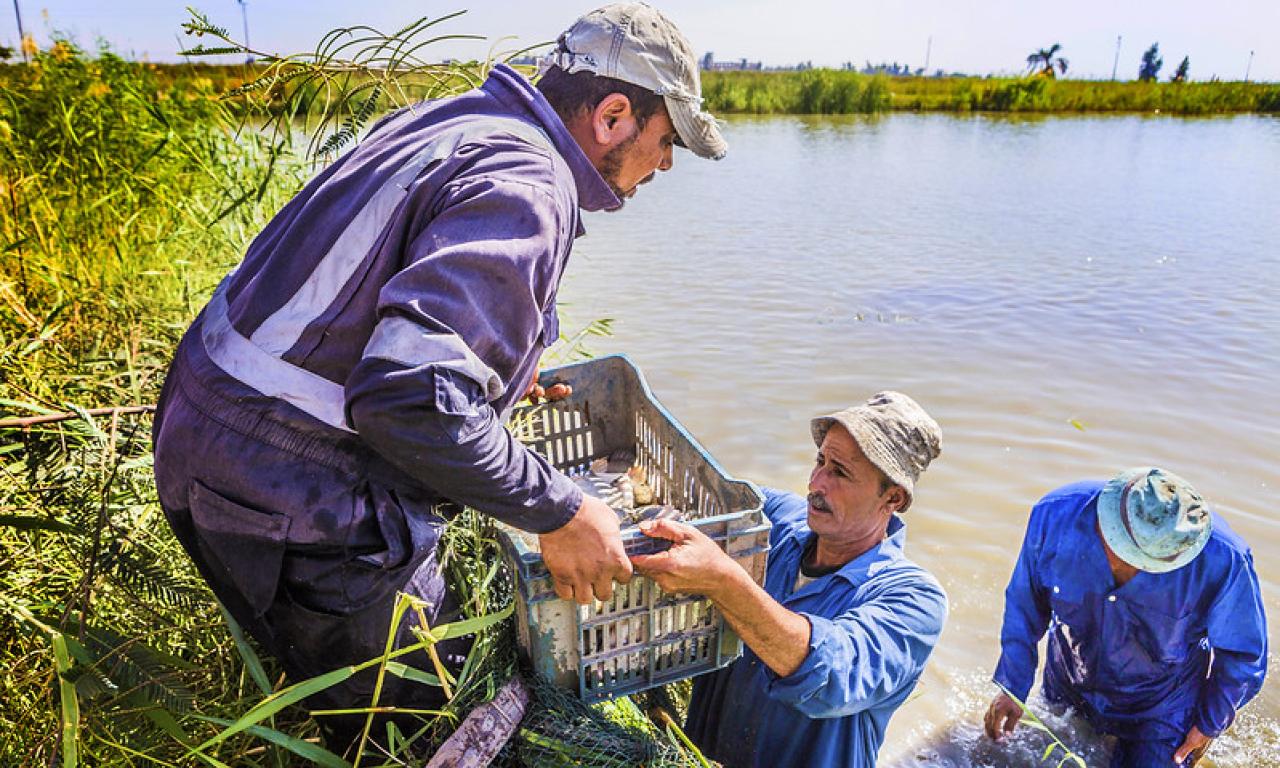
Egypt enacted measures to prevent the spread of COVID-19 at the end of March including closing airports, gyms, religious institutions, schools and restaurants. A curfew was also instated from 8 p.m. to 6 a.m. and non-essential shops were required to close at 5 p.m. The curfew was eased at the beginning of the Ramadan period from 9 p.m. amidst workers’ increasing struggles to pay rent and feed families in a pre-holiday period where business is usually booming. By the beginning of May, Egypt had registered 5,895 confirmed cases and 406 deaths.
Impacts on fisheries and aquaculture: Fishers were reported to have experienced financial difficulties due to the suspension of exports, halt in tourism and the closure of other related businesses such as hotels and restaurants. The travel and tourism industry is a leading economic sector in Egypt, representing 20% of GDP and losses up to $5 billion in tourism revenues have been projected. The loss of these markets is reported to have led to fish being sold at very low prices, and some fish markets in Alexandria have closed to reduce gatherings. Closures, low prices and difficulties in finding traders have discouraged fishers from going to sea and most fishing boats are said to be taking a hiatus to support the measures.
Local media has reported that eating fesikh - a type of fermented and salted fish widely consumed during Easter and the spring holiday Sham el-Nessim - could weaken the immune system and enhance susceptibility to COVID-19. It was later reported that sales of fesikh had declined to 30% to 40% of their usual levels. On the other hand, prices of fish including tilapia, mullet, crab and shrimp were reported to have increased by 10% following a reported rise in demand prior to the Ramadan holiday which started April 24th.
Responses and adaptations: Workers in the informal sector, which reportedly accounts for two out of three jobs, have been promised payments of $32 per month for three months by the government to make up for their lack of social or labour protection. Many informal workers are reported to not yet have received this financial compensation from the state. Fishers were not included in this initiative, sparking union requests to have policies specifically directed towards the fishery sector, as many fish workers do not benefit from government social safety nets.